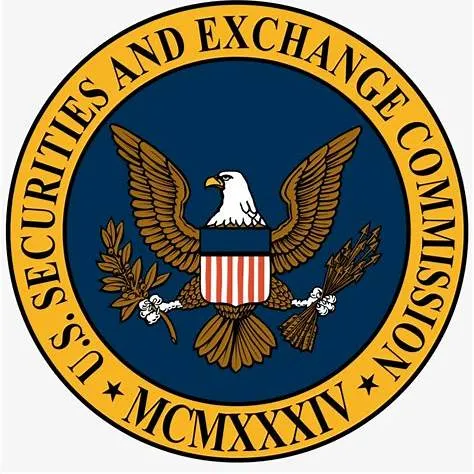 BrokerHiveX
BrokerHiveX+1 202-551-6000
 BrokerHiveX
BrokerHiveX

https://www.sec.gov/
The U.S. Securities and Exchange Commission (SEC) is responsible for maintaining the healthy operation of the world's largest capital market. Its functions, including rulemaking, registration review, information disclosure, law enforcement investigations, and investor education, jointly create a "transparent, fair, and orderly" market environment. For companies and individuals planning to list in the U.S., provide securities services, or provide investment consulting, complying with SEC regulations and registration procedures is not only a legal obligation but also a prerequisite for gaining investor trust and market access.
The U.S. Securities and Exchange Commission (SEC) is the core agency of the U.S. federal government responsible for securities market regulation. Its primary mission is to protect investors, maintain fair and orderly markets, and facilitate capital formation. The following provides a comprehensive introduction to the SEC, focusing on its history, organizational structure, core responsibilities, key regulations and registration requirements, and its information systems and investor services.
The SEC was established in 1934, its predecessors traceable to the Securities Act of 1933 and the Securities Exchange Act of 1934. Before and after World War II, insider trading, price manipulation, and other illegal activities frequently occurred in the US stock market, severely undermining investor confidence. To restore order in the financial markets and prevent systemic risks, Congress passed legislation establishing the SEC, an independent agency with law enforcement powers.
The commission consists of five members: nominated by the president and confirmed by the Senate, members serve five-year terms, and the number of members generally does not exceed three from the same party.
Office and Department:
Office of the Chair
Office of the Chief Accountant
Office of the Chief Economist
Division of Trading and Markets
Division of Corporation Finance
Division of Investment Management
Division of Enforcement
Office of Compliance Inspections and Examinations (OCIE)
Regional offices: Located in more than 20 cities across the United States, they are responsible for on-site inspections and law enforcement of local brokers, exchanges, and investment advisors.
Rulemaking: Based on the authorizations of the Securities Act, the Exchange Act, the Investment Advisers Act, the Investment Company Act, etc., formulate specific compliance rules and disclosure standards for issuers, exchanges, investment advisors, etc.
Registration review: Review of the company's initial public offering (IPO) registration statement (Form S-1, Form 10), broker/dealer registration (Form BD), investment advisor registration (Form ADV) and other materials.
Information disclosure supervision: Registered companies are required to regularly submit annual reports (10-K), quarterly reports (10-Q), major event reports (8-K), etc. in the EDGAR system to ensure market transparency.
Law enforcement investigations: Through subpoenas and on-site inspections, we investigate and punish illegal activities such as insider trading, fraudulent issuance, market manipulation, and false disclosures. We may also request criminal prosecution from the Ministry of Justice or impose administrative penalties on our own.
On-site inspections: OCIE conducts regular or random compliance inspections of securities firms, exchanges, investment advisors, and other custodial institutions to assess the implementation of their risk management, fraud prevention, and client asset segregation systems.
Investor Education: Establish the Investor.gov website to provide investor protection manuals, fraud cases, and question-and-answer guides to help the public identify risks and safeguard their own rights and interests.
Securities Act (1933): Regulates registration and disclosure requirements for public offerings of securities and prevents fraud during the offering period.
Securities Exchange Act (1934): Regulates secondary market trading, establishes the SEC and gives it enforcement powers; requires registration of exchanges, brokerages, and investment advisors.
Investment Advisers Act (1940): Requires investment advisers managing assets exceeding a certain size to register with the SEC or state regulators, file Form ADV, and comply with compliance obligations.
Investment Company Act (1940): Regulates the operations, governance, and disclosures of investment companies such as mutual funds and closed-end funds.
Form BD / Form U4: Core documents for broker registration application and employee background check;
Form ADV Part 1 & Part 2: Organizational and business disclosure documents required for investment advisor registration.
EDGAR (Electronic Data Gathering, Analysis, and Retrieval System) is the SEC's electronic document collection and retrieval platform, providing free public access to all public documents filed by registered companies. The SEC also regularly holds public hearings, webcasts, and seminars, and publishes risk alerts, updated regulatory guidance, and investor reminders through channels such as Investor.gov, the SEC's YouTube channel, and Twitter.

+1 202-551-6000


https://www.sec.gov/

U.S. Securities and Exchange Commission 100 F Street, NE Washington, DC 20549 United States
Regulating

Regulatory Number CIK 0002076625